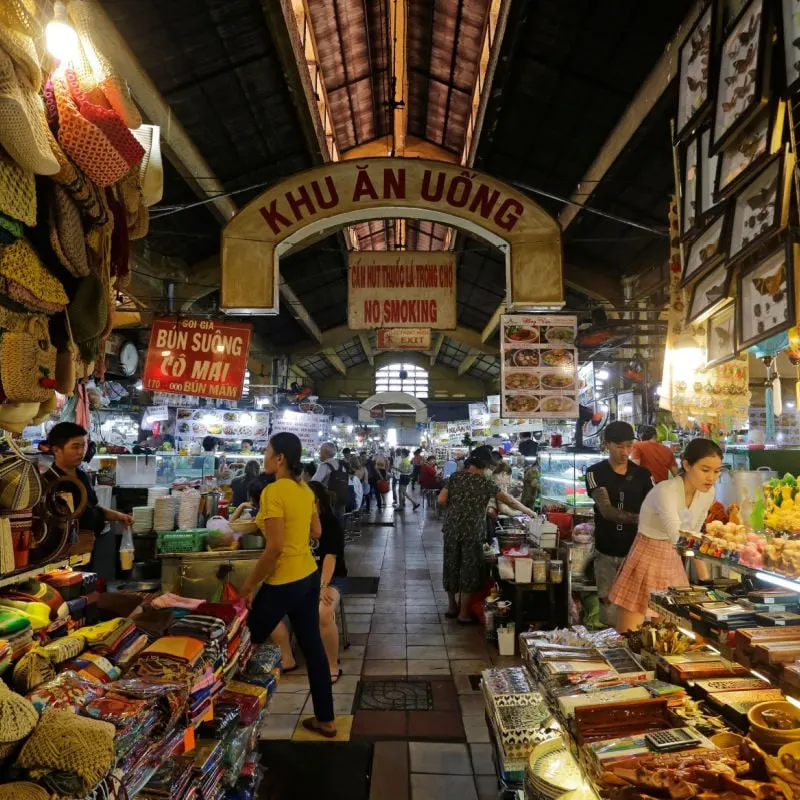Thanks to its rich tapestry of cultures, abundant attractions, and diverse geography, Asia has always been a favorite among digital nomads looking to explore some of the world’s most stunning wonders while keeping living costs at a minimum.
With that said, not all countries across the continent offer the same level of security, connectivity, and overall comfort, which is why doing your due diligence is a must before embarking on a long, transpacific journey.
For example, there’s one gorgeous country, in particular, that has lately captured the interest of an ever-growing number of digital nomads.
Here’s why:
Convenient Tourist Visa
Vietnam’s 90-day tourist visa, introduced just this past August, has been a game changer for visitors and digital nomads alike.

Not only is the document obtainable online, but it also allows for multiple entries in and out of Vietnam, allowing remote workers to explore hotspots and attractions located outside of the country’s borders with ease.
Similar visas in comparable Southeast Asian destinations are nowhere near as easily obtainable or long-lasting.
Thailand’s, for example, only lasts for 30-45 days, meaning that most of your time in the country will probably be spent worrying about the next set of bureaucratic hoops you’ll have to jump through in order to obtain a renewal.

Indonesia, on the other hand, offers a digital nomad visa but requires applicants to have proof of funds of at least 2 billion Indonesian rupiahs ($130,000) in their bank account, which is simply unrealistic for a lot of remote workers.
Malaysia also has a set minimum income requirement, which, while more reasonable at $24,000, is still an extra hoop to jump through during the application process.
It’s also worth noting that visas designed specifically for digital nomads come with a far longer list of criteria to meet and documents to supply than tourist visas like Vietnam’s.
So Much To Explore
Though, as mentioned, you’re able to freely travel in and out of Vietnam while on the 90-day tourist visa, chances are you’ll want to spend most of your time exploring the country’s abundant attractions.

Let’s start with Hanoi, Vietnam’s capital and unofficial cultural epicenter, where the Old Quarter’s narrow streets, the Ho Chi Minh Mausoleum, and the Temple of Literature provide the visual and intellectual stimuli so many explorers are after.

Though the country’s cultural landmarks stretch way beyond Hanoi, you’ll still want to make sure you leave at least a little bit of space in your itinerary to marvel at the area’s natural wonders as well.
From the serene waters of Ha Long Bay to the terraced fields of Sapa, digital nomads can find some much-needed tranquility and inspiration in the kind of natural beauty that can only be found in Southeast Asia.
Low Cost Of Living
While the gorgeous sights are undoubtedly a big selling point for Vietnam, what’s drawing in digital nomads at such remarkable rates is the area’s low cost of living.
With spacious one-bedroom apartments priced at less than $250 and monthly food costs hovering around $200, it’s easy to see why so many remote workers are rushing to Vietnam.

A U.S. salary can stretch much further here, allowing you to save, travel, and even ease off on your work hours in search of a better work-life balance.
Anecdotal evidence shows that the average living expenses of a digital nomad living in Hanoi, Da Nang, or Ho Chi Minh City range between $700 and $950, which is notably cheaper than what you’d have to pay in the likes of Thailand or Malaysia.
Friendly Atmosphere
Friendliness and hospitality are two values that are deeply ingrained in Vietnam’s culture, something that becomes apparent as soon as you come in contact with a local or ask them for help.
The willingness of Vietnamese people to share their culture and traditions not only enhances the overall experience but also allows you to make new connections and actually feel like you’re part of a community.

What’s more, the country’s popularity among digital nomads has turned its biggest cities into thriving expat communities where you can meet people in the same position as yours through co-working spaces and meet-up events.
Credit: Source link

